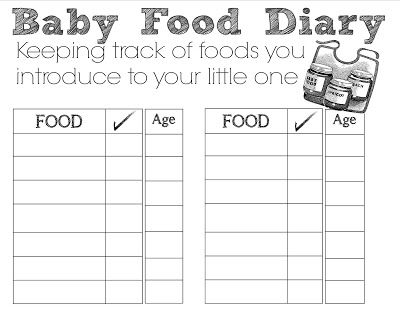Baby sleeps through feedings
What to Do If Your Baby Falls Asleep While Nursing
When you have a new baby, you often get a lot of warnings about how your little one — and you! — will sleep. But you may be surprised to find that in the first few weeks of your baby’s life, they do almost nothing but sleep. In fact, many newborns will spend the majority of their 24 hours snoozing.
This may seem like a good thing, and in most cases, it is. Enjoy these sleepy days while they last! But sometimes your baby ends up sleeping so much that they can’t seem to get in a good feed. This is especially true for breastfeeding or chestfeeding babies, who have to actively work to extract milk than their bottle-fed counterparts.
If your baby can’t seem to stay awake to get a full feeding session in, you likely have concerns. You may be wondering what you can do to keep them awake, if there’s anything wrong with your baby, or if all the sleeping is a sign that feeding isn’t going well.
Let’s take a look.
It’s common for newborns to have days or even weeks when they’re very sleepy and hard to keep awake. Your baby is adjusting to life outside the womb, and this adjustment can be tiring. Plus, your baby may still have their days and nights mixed up, causing them to sleep a lot during the day when you’re ready to feed them.
Luckily, in most cases, “sleepy at the breast” babies don’t stay that way for many feeding sessions in a row or for that long. Most sleepy babies will usually get in enough feeding sessions during a day, even if they have a few sleepy feedings sometimes.
In general, if your baby has enough dirty and wet diapers (usually four to six wet diapers and three to four poopy diapers per day) and is putting on weight at a healthy pace, there’s nothing wrong with them having a couple of sleepy, less vigorous nursing sessions every now and then.
Even falling asleep at the breast is usually fine. In fact, many babies will fall asleep after getting in a good feed. A full tummy makes babies tired, and falling asleep is a natural reaction.
A full tummy makes babies tired, and falling asleep is a natural reaction.
Some babies empty the breast in just a few minutes and fall asleep satisfied. You can usually tell that your baby has had enough when:
- you’ve heard gulping or swallowing while nursing
- your breast feels less full after your baby has detached
- your baby goes from actively sucking to sucking lightly and falling asleep
You may also notice that their body is tense — their hands in tight fists — at the beginning of the feed. But when they’re done, they have unwound and seem more relaxed.
If your baby shows signs of not getting enough milk (fewer wet or dirty diapers and slowed weight gain), then waking them up for those feedings is definitely something you’ll want to focus on.
If you’re not sure if your baby is getting enough milk, visit your pediatrician for a wellness visit and weight check. Again, if your baby is healthy and growing well, falling asleep while nursing isn’t something to stress out too much about.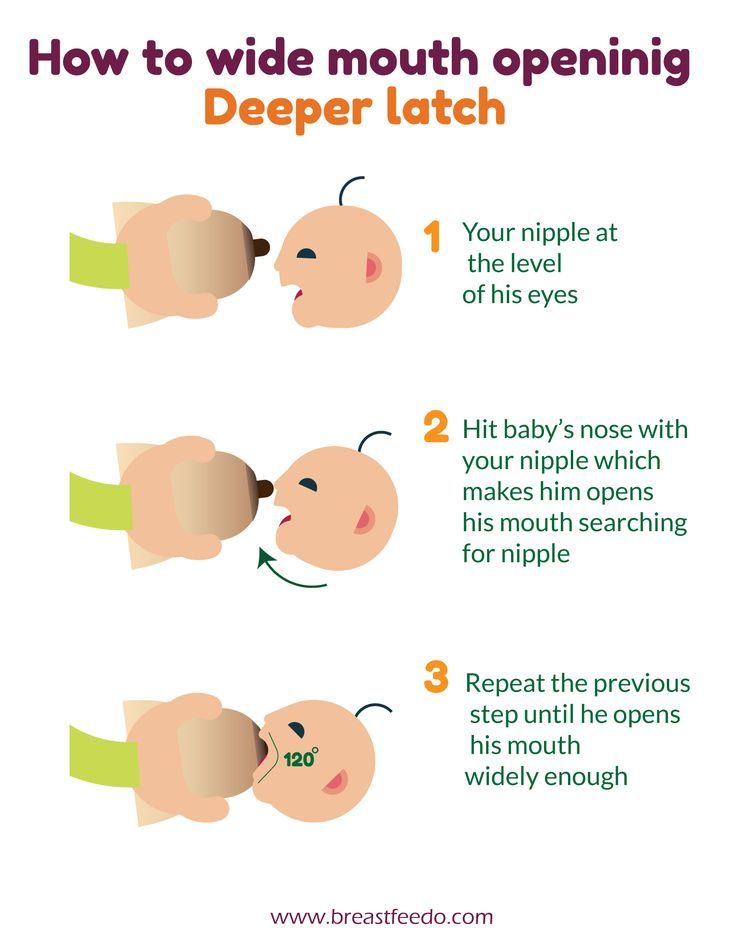 Having your doctor examine your baby can help you sort out what’s going on.
Having your doctor examine your baby can help you sort out what’s going on.
There are some cases in which a “sleepy at the breast” baby may not exhibit typical newborn behavior. In those instances, extra sleepiness is a sign of a medical condition.
The most common newborn condition that tends to make babies extra sleepy is jaundice. In addition to lethargy and poor feeding, babies with jaundice may have yellowish skin, fewer wet or dirty diapers, and may be extra fussy.
Babies with jaundice should see a pediatrician to make sure there are no serious health concerns.
Rarely, babies who are sleepy during feeds may have underlying medical conditions such as a cardiac or respiratory condition. They may also be battling a virus or bacterial infection.
If your baby is having difficulty breathing, has a fever, is vomiting, or is difficult to rouse, speak with your doctor or seek emergency medical attention.
Luckily, there are many things you can try if your baby keeps falling asleep while breastfeeding or chestfeeding.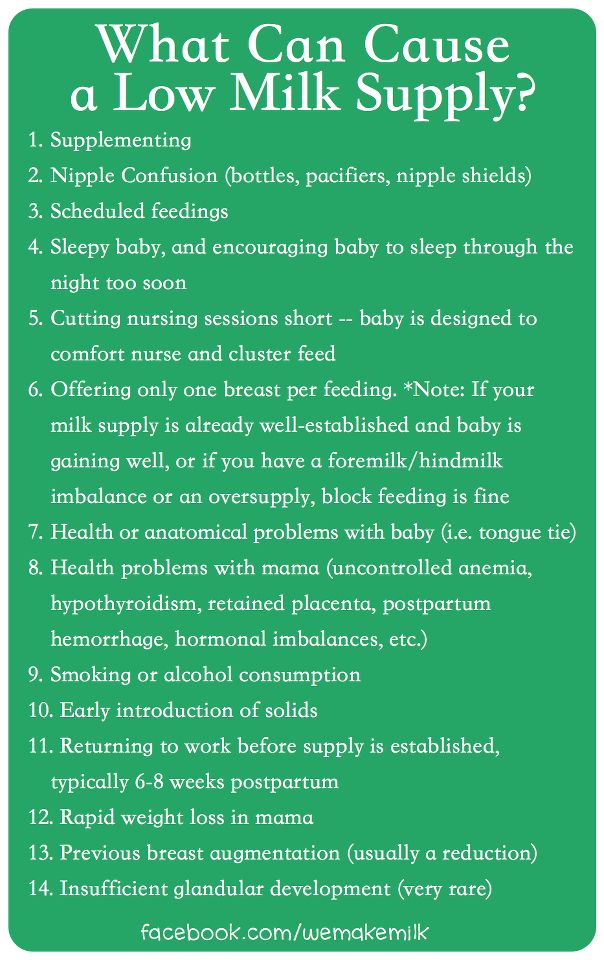 Here are a few favorites.
Here are a few favorites.
Tip 1: Switch sides
If your baby falls asleep frequently while nursing, you can try a technique called switch nursing. This is as simple as it sounds.
As soon as your baby starts falling asleep (you may notice that their sucking becomes less frequent or fluttery), you can try switching them to the other side. This may wake them up, and they may find that the other side has milk more readily available.
Tip 2: Compression
Your baby may become sleepy when milk flow slows down. It’s normal for there to be times during a nursing session when the milk flows faster — this is usually during letdown — and times when it slows. But some babies get frustrated when this happens and tend to zonk out.
You can help get milk flowing again by doing something called breast compression. Using your free hand, cup the side of your breast, making a C shape with your hand. Then gently squeeze. You should feel your baby’s suckling become more active as the milk starts to flow.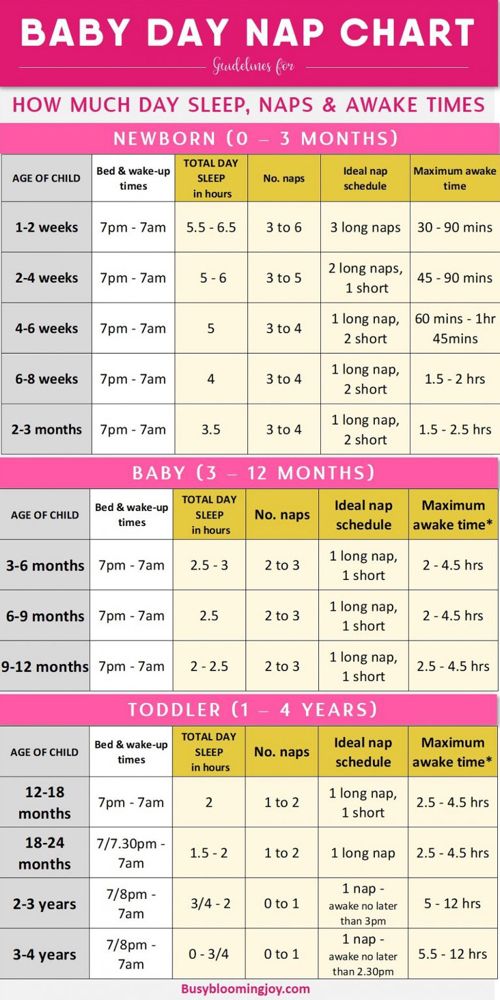
Tip 3: Strip your baby down to their diaper
Babies that are too warm tend to get sleepy. So strip your baby down to their diaper and try nursing them. You can also apply cool washcloths to their skin to keep them awake.
If you’re concerned that your baby is too cold, you can drape a breathable blanket over them. But don’t worry too much: When they’re skin to skin with you, they’ll stay warm enough.
Tip 4: Tickle those toes!
Gentle stimulation of your baby’s senses can wake them up. Try tickling their toes, walking your fingers up and down their arms, or swirling your finger around the top of their head.
Tip 5: Check the latch
If your baby isn’t latching well, they may not be able to get enough milk, and not getting enough milk can make your baby sleepy.
A good latch means that your baby’s mouth is wide open and they’re taking in a good portion of the areola. If you aren’t sure that your baby has a good latch, consider contacting a lactation consultant for assistance.
Tip 6: Get to skin-to-skin
Having skin-to-skin time with your baby is a great way to wake them up to feed. Dress your baby in their diaper only and place them belly to belly with you. This allows them to tap into their newborn instincts, which include searching for and locating the breast.
See if your baby wants to smell, lick, and explore. They may latch onto the breast themselves without any coaxing!
What if nothing is working and your baby just simply can’t stay awake while breastfeeding or chestfeeding? This is definitely an instance where you want to seek out professional lactation help or medical attention, if you haven’t already.
If your baby has gotten to the point where they’re not taking in milk while feeding, supplementing may be necessary.
Supplementing — when done mindfully, and with your own expressed milk when possible — might be just the thing that perks your baby up so that they can have the energy to nurse well. Working on latching, positioning, and other possible issues may also be vital in helping you solve this concern.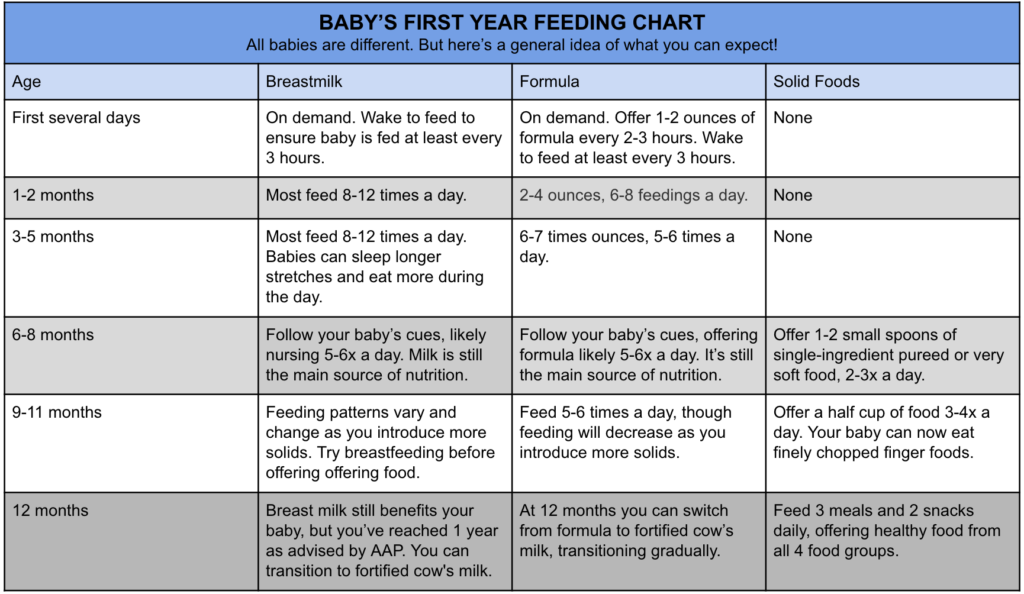
Most of all, don’t give up. So many nursing parents have been in this situation at one time or another and have gotten to the other side. You’ll get through this, too.
Sleepy Baby – Why And What To Do
Nobody likes to disturb a sleeping baby, but sometimes a baby can be too sleepy for their own good. At times like this they may need you to take action.
Your newborn baby needs to nurse actively for one or both breast at each feed. Offer the second breast after they seem to have finished at the first, although they may not want both sides at every feed.
What makes a baby sleepy?
Recovering from birth: In the first few days, some babies are sleepy or uninterested in feeding. It’s especially true for small babies, after a difficult labour or birth, or if you received drugs for pain relief during labour.
Jaundice or an infection may make a baby sleepy. Newborn jaundice is normal but frequent breastfeeding helps prevent it becoming a problem.
Not enough milk: Your baby may sleep to conserve energy if they are not getting enough food. They may also sleep longer that is good for them if they are apart from you.
Is my baby too sleepy?
To gain weight and stimulate your milk production, expect your newborn to:
- Breastfeed effectively at least 8–12 times in 24 hours
- Feed actively from one or both breasts at each feed, swallowing regularly.
- Nurse at least every 2–3 hours from the start of one feed to the next, with one longer sleep of 4–5 hours.
- Have periods where they breastfeed on and off for several hours, usually in the evening.
- Gain weight from day 4 and regain birth weight by about two weeks.
Look at our page Beginning Breastfeeding for more information. If your baby is too sleepy to do all these things they may need your active help to ensure they are nursing effectively and getting enough milk.
Is my baby getting enough milk?
A baby may lose up to 7% of their birth weight during the first few days.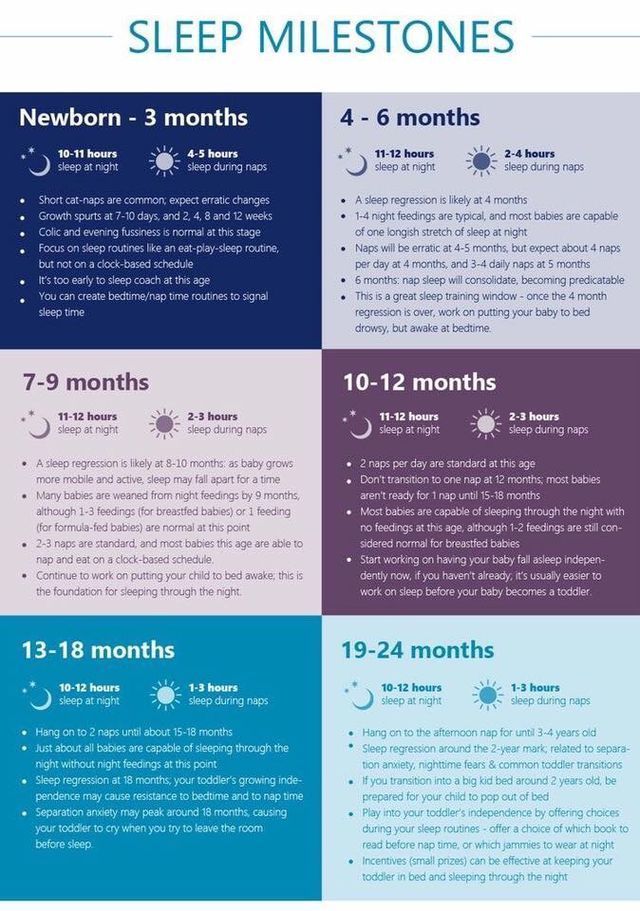 From around day 3-4, expect them to start gaining, and to regain their birth weight by 10-14 days. Many breastfed babies gain around 200-235g (7-8oz) as week for the first 2-3 months. If you baby consistently gains less, or they haven’t regained their birthweight by 14 days, seek skilled help to assess whether they are getting enough milk. What comes out is a sign of what has gone in, so counting dirty nappies can be a useful guide between weighing sessions. For more information to help you know if your baby is getting enough milk in the first few days, you could read our article here about signs of effective feeding in the early days. And then after the first few days, this article will help you decide if your baby is getting enough milk.
From around day 3-4, expect them to start gaining, and to regain their birth weight by 10-14 days. Many breastfed babies gain around 200-235g (7-8oz) as week for the first 2-3 months. If you baby consistently gains less, or they haven’t regained their birthweight by 14 days, seek skilled help to assess whether they are getting enough milk. What comes out is a sign of what has gone in, so counting dirty nappies can be a useful guide between weighing sessions. For more information to help you know if your baby is getting enough milk in the first few days, you could read our article here about signs of effective feeding in the early days. And then after the first few days, this article will help you decide if your baby is getting enough milk.
| Age | Dirty nappies per 24 hours |
|---|---|
| 1-2 Day | 1 or 2 greenish-black tarry meconium poos |
| 3-5 days | At least 3 green transitional poos |
| 5+ days | At least 3-5 yellow, loose unformed poos the size of a 2p coin or larger |
Remind your baby to nurse
If your baby is too sleepy or groggy to rouse themselves every few hours, you will need to wake them to feed to ensure they get enough milk. This will be easier if your baby is in a light sleep cycle: watch for rapid eye movements under their closed eyelids, arm and leg movements, sucking activity and changes in their facial expression.
This will be easier if your baby is in a light sleep cycle: watch for rapid eye movements under their closed eyelids, arm and leg movements, sucking activity and changes in their facial expression.
- Aim for your baby to feed at least 10 times in 24 hours, including at least once at night
- Encourage active nursing on the first breast, watching and listening for signs of swallowing.
- Use breast compression (see below) to keep your baby nursing actively.
- Offer the other side in the same way. You can switch back and forth several times if it helps your baby stay awake and feed.
- Encourage cluster nursing whenever your baby is more alert.
- Give expressed milk if they aren’t feeding well.
- Keep them close by—day and night—so they don’t sleep too long and you don’t miss their feeding cues.
Also try
- Dimming the lights and keeping your surroundings quiet and peaceful.
- Keeping the room temperature at around 18°C or undressing your baby a little if the room is warm.
 Being too hot can make a baby sleepy.
Being too hot can make a baby sleepy. - Unwrapping any blankets.
Newborn feeding cues
Signs of interest in feeding include:
- Mouth movements; smacking or licking his lips
- Sucking on lips, tongue, hands, fingers, toes, toys or clothing
- Rooting, head bobbing or nuzzling against whoever is holding them
- Fidgting and squirming a lot
- Fussing
- Crying – a late sign of hunger.
Do offer feed generously. A newborn won’t find it easy to feed well, if they have to wait and reached late hunger signs.
Helping your sleepy baby
Positioning and attachment
Getting a deep, comfortable latch is crucial. If your baby is not latched on well at the breast, they will have to work harder to get your milk. They may tire easily and fall asleep. Sometimes just a small adjustment to the way your baby comes to the breast can make a huge difference. An LLL Leader can provide individual suggestions tailored to your circumstances. If your breasts are engorged, gently hand express a little milk and/or ease swelling back with your fingertips to make it easier for your baby to latch on deeply and prevent you getting sore. See our longer article about Positioning and Attachment for more help on how to help your baby latch well, feed effectively and be comfortable for you.
If your breasts are engorged, gently hand express a little milk and/or ease swelling back with your fingertips to make it easier for your baby to latch on deeply and prevent you getting sore. See our longer article about Positioning and Attachment for more help on how to help your baby latch well, feed effectively and be comfortable for you.
Copyright Suzanne Tobin
Seek skilled help early on if you are finding breastfeeding difficult or uncomfortable.
Laid back breastfeeding
Try letting your baby lie on your body with their chest and tummy against you as you recline at about 45 degrees. If they can snuggle up close to your chest for periods of time, even when sleepy or during light sleep, they will often instinctively seek the breast and attach deeply and comfotably even during light sleep. This can be done skin-to-skin or with you and your baby lightly clothed. Watch for signs your baby is stirring and gently encourage feeding. Spending time relaxing like this can make a real difference to how well your baby feeds and how much milk you make. Our page on Comfortable Breastfeeding has more ideas.
Spending time relaxing like this can make a real difference to how well your baby feeds and how much milk you make. Our page on Comfortable Breastfeeding has more ideas.
Breast compression
If your baby starts to doze at the breast, this technique will help him breastfeed actively and take more milk.
- Cup your breast with your hand, near your chest wall, thumb opposite fingers in a C shape. Keep your hand well back from the nipple area.
- Wait while your baby breastfeeds actively, with their jaw moving all the way to his ear. When they stop swallowing, compress your breast firmly. They probably start swallowing again. Hold it squeezed until they stop nursing actively, then release your hand.
- Rotate your hand around your breast and repeat step 2 on different areas of the breast as needed. Go gently—this should not hurt.
Try switching breasts at least two or three times during each feed—when your baby comes off the first breast on their own or when breast compression no longer keeps them breastfeeding actively.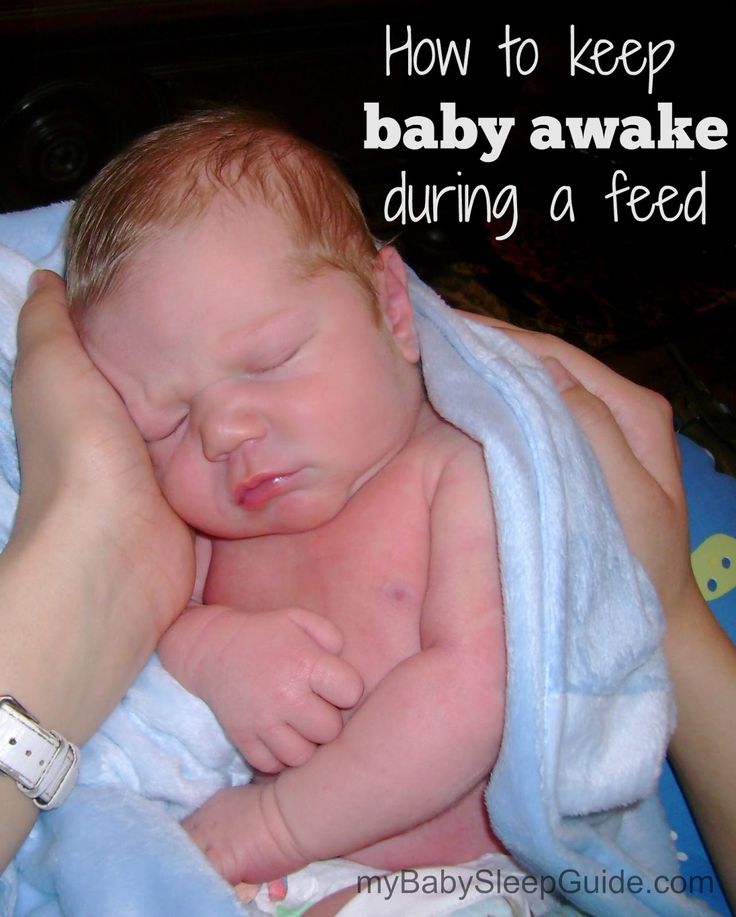
Express milk for your baby
Until your baby gets the hang of feeding you may need to do some work for your baby. If they aren’t latching at all, or is not feeding well and gaining weight, then expressing your milk will help establish milk production. The earlier you start, the sooner you’ll produce plenty of milk. Hand expression is often easiest at first but when your milk comes in combining hand expression with pumping can be most effective.
Giving expressed milk
First, encourage your baby to nurse at both breasts. Watch for swallowing and use breast compression an switch nursing until they stop drinking and start to doze.
Next, give your baby expressed milk until they have had enough. (For more on how to give additional milk, our article here). Giving your baby your expressed milk after breastfeeding can help them overcome sleepiness and feed more effectively next time.
Then, once your baby has settled, express from both breasts switching back and forth and using compressions and hand expression to get the available milk. Store this milk in the fridge ready for the next feed.
Store this milk in the fridge ready for the next feed.
Aim to complete this process within about an hour.
Avoid bottles and dummies
You can give small amounts of expressed milk using a spoon, flexible feeding cup or syringe. If you decid to use bottles for larger amounts, you can give the bottle in a way that helps protect breastfeeding. For more information on ways to give your baby milk and bottles see our article on Bottles and other tools. An alternative is to use a nursing supplement: this acts like a straw to deliver extra milk through a tube along your breast as your baby nurses, avoiding the need for bottles. Our article Nursing Supplementers explains more.
Don’t give up too soon
If your baby doesn’t respond quickly to your efforts to get him to breastfeed more often and more effectively, don’t give up. Keep your baby fed, Keep your supply protected and Keep your baby close. You may find our article on Getting breastfeeding back on track after a tricky start helpful. Check with your doctor to eliminate any medical reasons and contact your local LLL Leader to find one-to-one breastfeeding help. You can find support and encouragement from breastfeeding mothers in your local LLL Group too.
Check with your doctor to eliminate any medical reasons and contact your local LLL Leader to find one-to-one breastfeeding help. You can find support and encouragement from breastfeeding mothers in your local LLL Group too.
Written by mothers of LLLGB. Photos courtesy of Ellen Mateer and Suzanne Tobin.
Further Reading
Comfortable Breastfeeding
Positioning and attachment
Engorged Breasts – Avoiding & Treating
Hand Expression of Breastmilk
Is my baby getting enough milk?
My Baby Needs More Milk
Nursing supplementers
Jaundice in Healthy Newborns
Getting back on track after a tricky start – the Three Keeps
My baby won’t breastfeed
Bottles and other tools
Other websites
Biological Nurturing™: www.biologicalnurturing.com/video/bn3clip.html
Natural Breastfeeding Position video, Nancy Mohrbacher:
Benefits of skin-to-skin contact: www.kangaroomothercare.com
Books
The Womanly Art Of Breastfeeding. LLLI, London: Pinter & Martin, 2010
LLLI, London: Pinter & Martin, 2010
This information is available to buy in printed form from our shop.
Copyright LLLGB 2020
Updated June 2022
Your baby always falls asleep while breastfeeding
21.09.2022
Say the word "sleep" to parents of young children and you can easily provoke a conversation that ranges from how to get more sleep at night, to practicing safe sleep, to why kids like to trick you into thinking you have a schedule. going to sleep. But there are other topics that may not be talked about as much, such as babies sleeping in strange positions (my daughter always ends up in a horizontal position). What about sleep patterns while breastfeeding? You may wonder why your baby falls asleep while breastfeeding and what you can do about it.
Why do babies fall asleep while feeding?
Actually, it's a pretty simple reason. “Babies fall asleep during feedings mainly because they are satisfied and satisfied,” says Lee Ann O'Connor, International Certified Breastfeeding Consultant (IBCLC). And who can blame them for this? Especially cuddling up so close to your mom.
And who can blame them for this? Especially cuddling up so close to your mom.
In general, don't worry if your newborn sleeps on your chest. “You may be surprised to learn how much sleep your newborn has in the first few weeks of life,” says Sterling Gray-Simmons, Certified Breastfeeding Specialist. “Keep in mind that just as you need to sleep and rest after giving birth, so does your baby. Newborns often have days or even weeks when they are very sleepy and find it difficult to stay awake. Your baby has to adjust to life outside the womb, and that adjustment can be exhausting."
Not to mention, babies are biologically designed to sleep at the breast, as Grey-Simmons explains. Considering the composition of breast milk, the hormonal responses of infants to breastfeeding, there is definitely a link between breastfeeding and infant sleep patterns. "Knowing that it's okay to see your baby fall asleep while you're breastfeeding gives many newborn moms a sense of comfort," Gray-Simmons says. Sleeping on the chest is considered a healthy sign that the baby is full and satisfied, this condition is often called "milk coma".
Sleeping on the chest is considered a healthy sign that the baby is full and satisfied, this condition is often called "milk coma".
How to keep your baby awake while breastfeeding
While it's very valuable to watch your baby try to breastfeed while struggling with sleep, chances are you want to keep him awake to make sure he's feeding enough.
The first tip is to undress the child. Often, during a consultation, a mother complains about a sleepy baby, which she cannot attach to her breast, and the baby is wearing a hat, mittens, T-shirt, pajamas, and he is also swaddled. Even in an adult, a cozy shelter under a pile of blankets causes drowsiness, about the same thing happens with a baby.
The child needs as much skin-to-skin contact as possible, you can rub your ears or feet, change position, hold a column, wipe with a damp cloth or towel, feed in a well-lit place. Do breast massage so that milk flows more evenly.
You also need to make sure you don't take drowsiness as a sign that your baby is full, even if your baby falls asleep but remains attached to the breast. If you do this, it may cause your baby to put on too little weight and your milk supply to decrease. "Some babies who find it difficult to suckle effectively early in life tend to sleep while breastfeeding, even if they aren't getting enough milk." “These babies often get tired of suckling and fall asleep. They may also stop suckling in desperation because they cannot get milk and fall asleep instead. This may be due to oral restrictions such as short frenulum, high palate, shallow grip."
If you do this, it may cause your baby to put on too little weight and your milk supply to decrease. "Some babies who find it difficult to suckle effectively early in life tend to sleep while breastfeeding, even if they aren't getting enough milk." “These babies often get tired of suckling and fall asleep. They may also stop suckling in desperation because they cannot get milk and fall asleep instead. This may be due to oral restrictions such as short frenulum, high palate, shallow grip."
And while it's perfectly normal for a baby to doze off while breastfeeding in most cases, O'Connor says it's important to keep a close eye on breastfed newborns to make sure they don't fall asleep because they're tired or not getting enough milk. “If there is a problem such as a tight frenulum, low milk supply or premature labor, you need to contact a professional who can assess the situation.”
Also, make sure you pay attention to signs that your child is full or still hungry. “Watch your child, not the clock,” Gray-Simmons says. “Some babies are just very efficient at breastfeeding and may feel full in as little as five minutes, and another baby may suckle for 20 minutes and still not feel full.” Some examples of satiety signals include open and relaxed hands, while tight fists and a tense face are a sign that the baby is still hungry.
“Some babies are just very efficient at breastfeeding and may feel full in as little as five minutes, and another baby may suckle for 20 minutes and still not feel full.” Some examples of satiety signals include open and relaxed hands, while tight fists and a tense face are a sign that the baby is still hungry.
In general, "in most cases, babies fall asleep after they have had enough milk and their suckling needs have been met."
And mom needs super-strong coffee and friends for this))
Source: romper, 2018
Translation: Churikova Larisa
Image by Freepik
Baby falls asleep while feeding and is malnourished, what should I do?
Babies, after birth, sleep an average of 15-19h per day. Falling asleep occurs on the hands, in the crib, in the stroller or in the process of feeding. Mom is alarmed, because the child does not really eat and is constantly hungry. She walks around his bed with the question that is spinning in her head "to wake up or not to wake up to feed?". What to do if the baby falls asleep during feeding, should I wake the baby to finish feeding? Let's figure it out together.
What to do if the baby falls asleep during feeding, should I wake the baby to finish feeding? Let's figure it out together.
Why can my baby fall asleep while feeding?
The main reason for falling asleep on the chest is fatigue. Especially in the postpartum period. For the mother, this process was difficult, the child was also tired, he spent a lot of strength and energy at birth and is trying to recover during sleep.
In addition, suckling is not an easy process, it takes a lot of work to get milk from the mother's breast. As a result, the desire to sleep wins, and the child falls asleep without even finishing the meal to the end.
In addition to fatigue from birth and suckling, several more reasons can be identified:
- The child is full. Most often, this reason occurs in a situation where the baby is fed on demand, and for each squeak they give a breast. The kid simply does not have time to get hungry, since the intervals between meals are short and he does not need to eat a lot and longer than usual.

- Obstructed flow of milk from the breast . When a mother has good ducts, milk flows without much effort, the child does not spend much effort to get it. He eats enough and falls asleep. And in this situation, mom does not have to worry at all. But there is another side, when the ducts are clogged or the mother is very nervous, she begins to produce a stress hormone, which complicates the process of getting milk for the baby. It certainly exists, but getting it for a child turns out to be overwhelming work. As a result, the child falls asleep because he is tired.
- Undeveloped sucking reflex. Most often, this problem is faced by babies who were born prematurely. Literally after a couple of weeks of training, the situation with the facial muscles stabilizes, and the baby begins to actively suckle the breast.
- The newborn does not latch on to the nipple correctly. As a result, the baby chews more on the mother's breast, in an attempt to properly grasp the nipple.
 Nothing works out for him, the baby gets tired and falls asleep faster to regain strength.
Nothing works out for him, the baby gets tired and falls asleep faster to regain strength. - Physical discomfort. The child does not feel well, hence he may be inactive, and his well-being may also affect his appetite.
What can I do to keep my baby from falling asleep while feeding?
If the baby sucks for 3-5 minutes, falls asleep for a short time, wakes up and needs more supplements, the mother needs to adjust her diet and make sure that the baby does not fall asleep during feeding, but eats fully. There are several proven ways to keep your baby awake while breastfeeding:
- Talk to the baby, show him a bright or loud toy, touch different parts of the body, run your hand over the heels, shake the handle, kiss the baby on different parts of the body.
- As soon as the sucking intensity decreases and the baby has eaten very little, gradually remove the baby's nipple from the mouth.
 If he is hungry, he will start suckling again. The same must be done with the bottle, it can still be twisted.
If he is hungry, he will start suckling again. The same must be done with the bottle, it can still be twisted. - Change position or start moving if the baby is in your arms in the cradle position. Shift the baby to the bed, offer the breast while lying down, so you will shake him a little and remove the focus from sleep.
- If the room is warm, stop feeding and undress the baby. This will take his attention away from sleep.
- Feed your newborn on time. Infants aged 0-6 months can withstand a feeding interval of 1.5-2 hours. Make sure that the child literally “works up” an appetite.
- Focus on sucking intensity and time. If the baby was born prematurely, he can eat longer, as he has little strength and weak sucking muscles. The duration of feeding in such children can vary within 15-20 minutes. If the baby is born on time, then feeding takes 7-10 minutes.
- Try to alternate ways of bedtime and do not teach your child to eat before going to bed.
 Offer to lay your chest in one position, fall asleep in your arms in the other, fall asleep to a lullaby and light swaying in the next. Introduce air sleep in a stroller.
Offer to lay your chest in one position, fall asleep in your arms in the other, fall asleep to a lullaby and light swaying in the next. Introduce air sleep in a stroller.
To wake up or not to wake up?
It is worth waking up the baby for feeding when he refuses to eat with his eyes closed. That is, the mother offers the child sleepy feeding, in which he does not eat. In this case, it is worth creating conditions for a soft awakening and offering breasts.
It is also necessary to wake up for feeding when the child is not gaining weight well or after 2-3 sucking movements immediately falls asleep.
You should not wake up the baby if he actively sucks at the mother's breast for at least 7 minutes, the baby ate the day before before bedtime, he has no problems with weight gain. In addition, if a child is sick, he should not be woken up for feeding, since sleep during illness is needed more than food. Since the child is fully restored when he sleeps.
Is it necessary to hold a sleeping baby in a column
Spitting up is a fairly common situation that occurs with babies. For babies who are in a horizontal position, this can be dangerous. He may choke and die. The baby burps for several reasons:
- During feeding, the baby swallows air.
- Overeating. Therefore, by regurgitation, the body frees the stomach from excess food.
- Incorrect position of the baby when breastfeeding or bottle feeding.
Frequent sleep during feeding, provokes problems with laying down and organizing full daytime sleep. Mom tries in every possible way to organize a rhythm for the child, but due to certain circumstances it is not possible to do this. In order to understand the reason and start working on the organization of the rhythm, a systematic approach is needed. On the course "SLEEP OF A BABY, MOTHER IN RESOURCE (+ SZ)", mothers build a rhythm / daily routine, work on separating breasts / sleep, and if desired, mothers go further and teach the child to fall asleep on his own.








